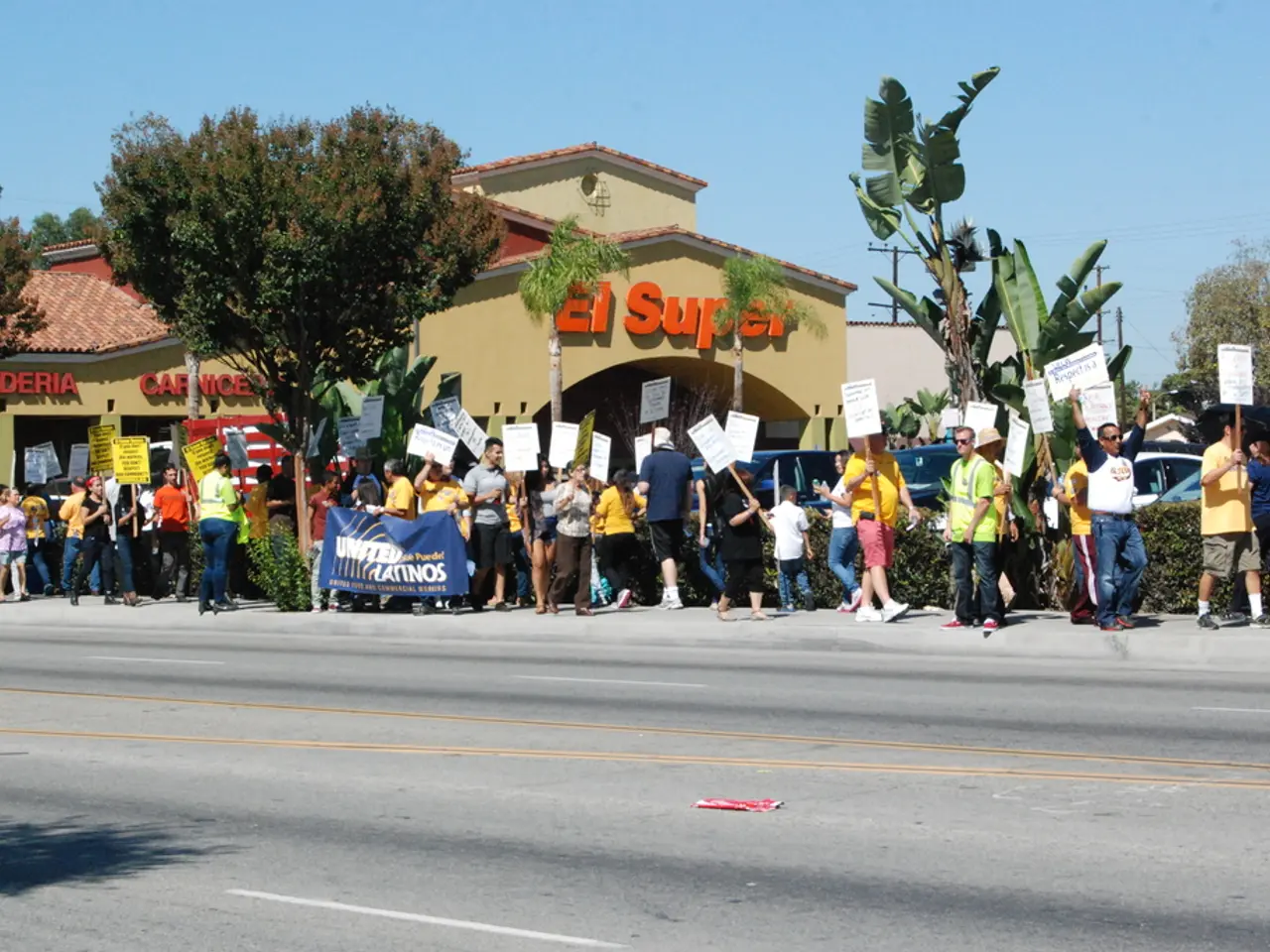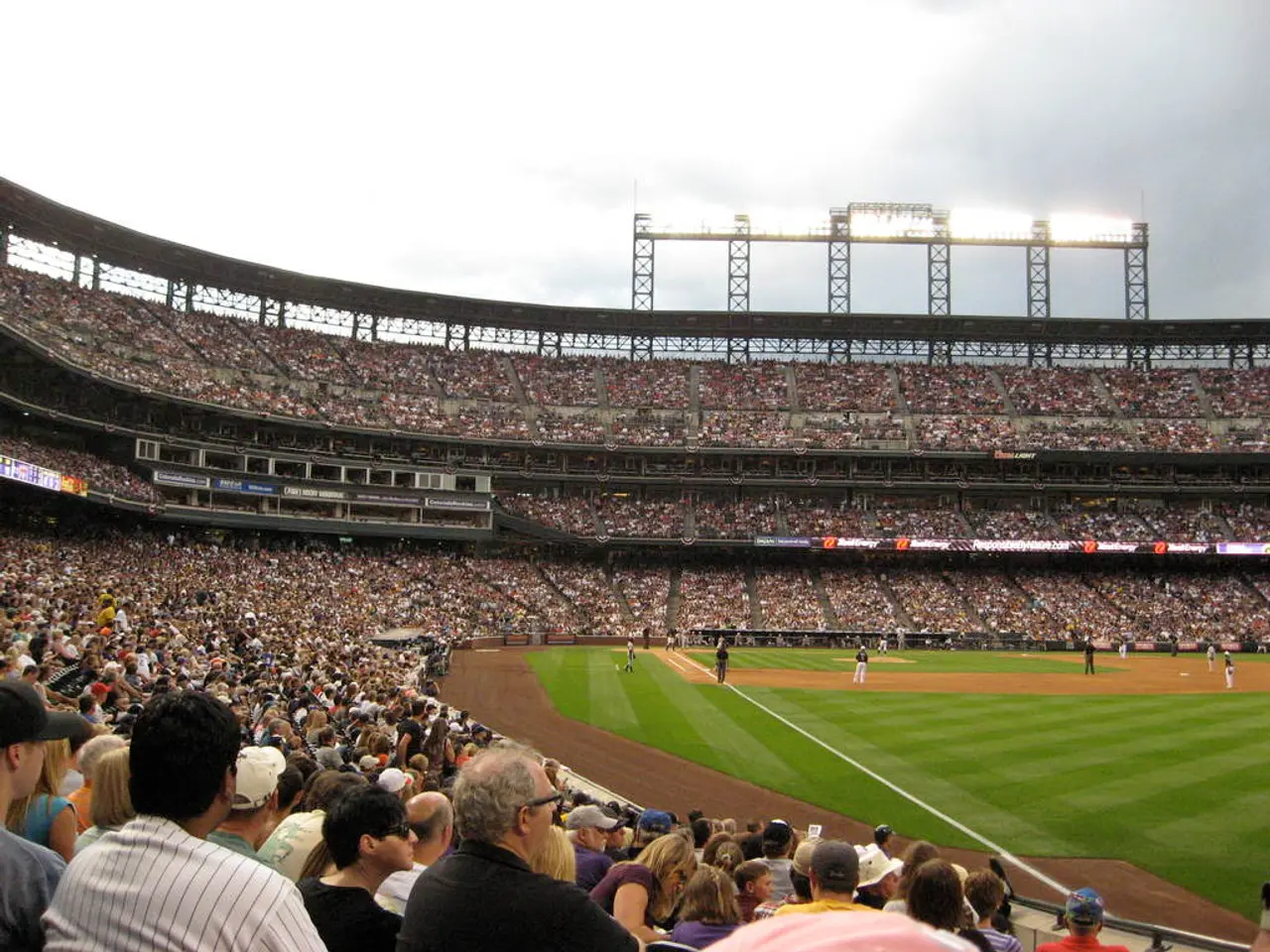Massive Protest in London: Thousands upon Thousands Urge Politicians to Reverse Environmental Damage Immediately
In the lead-up to the 2024 General Election, a significant event took place in London - the Restore Nature Now march. This demonstration, attended by thousands, unified a broad coalition of people calling for urgent action to halt the decline of wildlife and nature.
At the heart of the march were five key demands for politicians: increased funding for nature-friendly farming, stronger rules for polluters, expanded nature protection areas, a new Environmental Rights Bill, and a fair climate plan aimed to halve emissions by 2030.
Prominent figures such as Craig Bennett, Chief Executive of The Wildlife Trusts, and celebrity campaigners like Emma Thompson, Chris Packham, and Steve Backshall, were present, emphasizing the importance of restoring nature and acting quickly.
The march aimed to show the strength of public opinion on the need for stronger political action to tackle the nature and climate crisis. Banners reading 'Defend Nature', 'Protect our rivers', and 'People and nature' were carried aloft, reflecting the diverse range of concerns held by participants.
Photographs of the event were captured by various photographers, including Jack Cripps, Matt Bristow, and Logan Walker, providing a visual testament to the public's demand for change.
Richard Benwell, CEO of Wildlife and Countryside Link, highlighted the widespread support across political and social backgrounds. He called on Keir Starmer and politicians to make this Parliament the one to reverse nature’s decline, emphasizing that time was running out.
However, despite the demands and public support, confidence in government promises remains very low. Only 8% of Brits are confident the government will meet its targets to halt nature’s decline. Environmental groups criticize many government policies as too weak, delayed, or under-resourced relative to the scale of the crisis and commitments.
In response, organizations like the Woodland Trust continue campaigning for robust legal protections and concrete government commitments, including campaigns to protect ancient trees and forests. Upcoming events, such as the Wild Summit in September 2025 and mass lobbies in Westminster, aim to maintain pressure on policymakers to act decisively for nature and climate.
In summary, the Restore Nature Now march demanded concrete policy changes focused on nature funding, stronger environmental regulation, legal rights for nature, and climate ambition. While prominent environmental leaders expressed hope, they warned that government action has yet to meet those demands, keeping public trust low and urgency high.
- The Restore Nature Now march, a significant event in London, underscored the need for policy-and-legislation changes in environmental-science, particularly in the areas of nature funding, strengthened environmental regulation, and legal rights for nature.
- Science, particularly environmental-science, has been at the forefront of the climate-change and biodiversity crisis discussion, with events such as the Restore Nature Now march promoting urgent action and stronger political commitment to tackle these issues.
- The General News has been filled with discussions about the 2024 General Election and the impact of the Restore Nature Now march on policy-and-legislation, with many focusing on the march's five key demands: nature-friendly farming, stronger pollution rules, expanded nature protection areas, an Environmental Rights Bill, and a fair climate plan.







